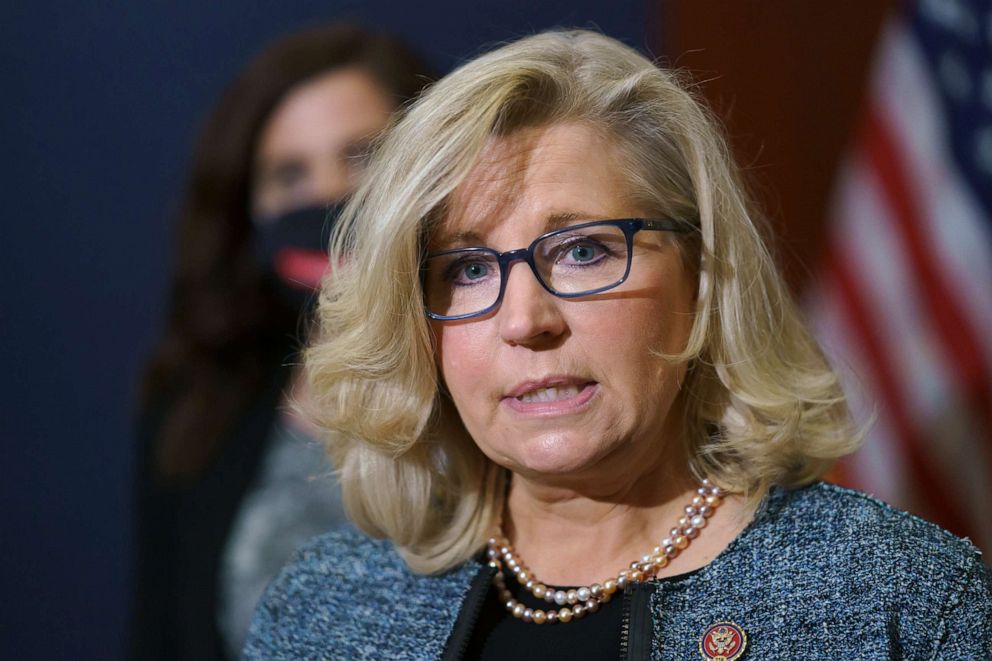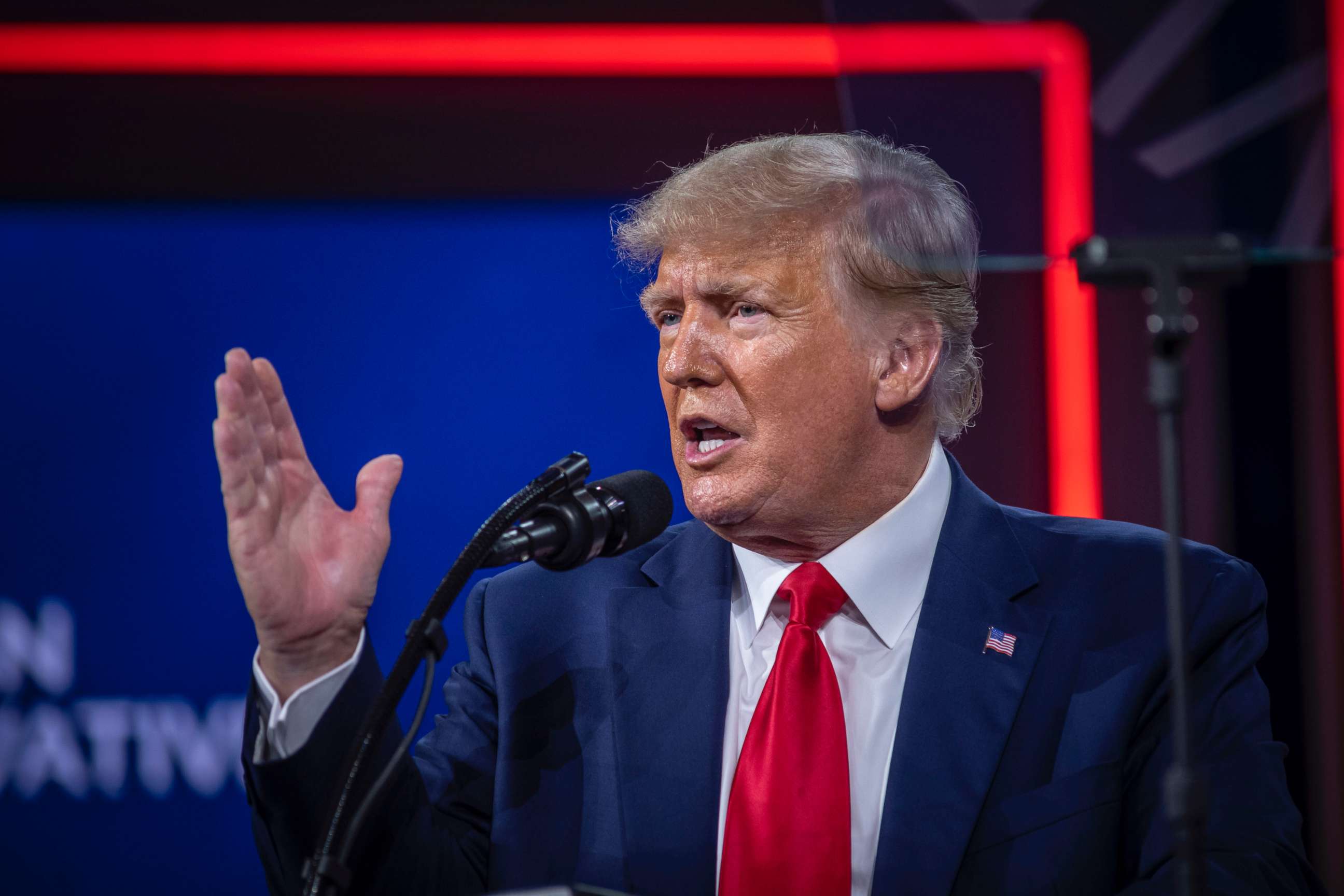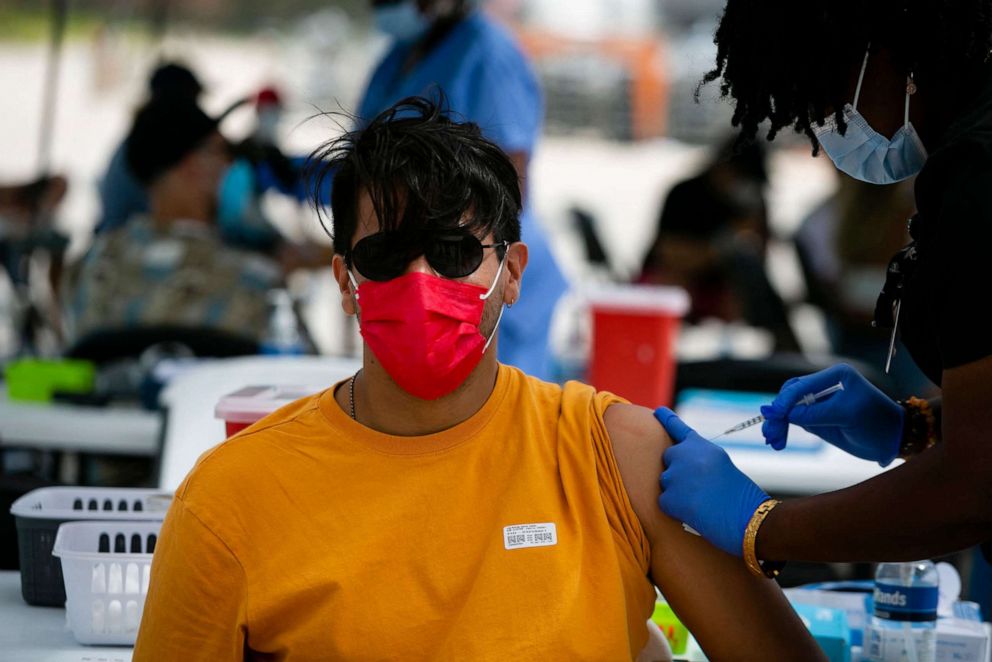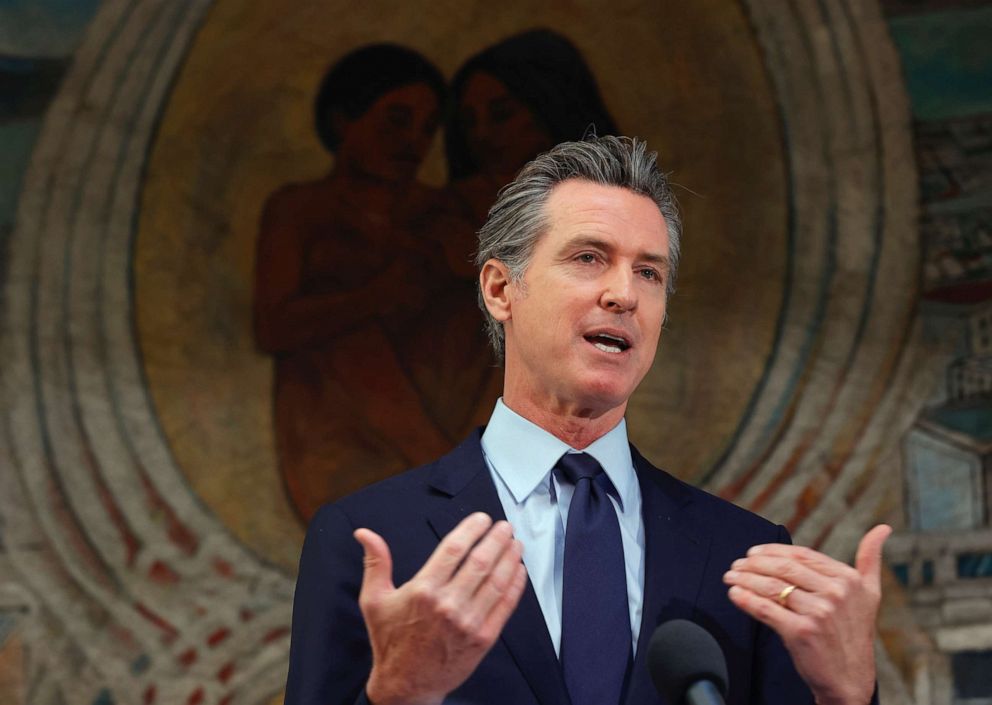GOP gets glimpse of messy future in Virginia: The Note
Winning there will mean owning Trump, the messaging he's established as mantra.
The TAKE with Rick Klein
Rep. Liz Cheney's hours in House leadership are numbered, with a vote coming Wednesday that is almost certain to see her booted over her very public split with former President Donald Trump.
But the Republican Party's foreseeable future is being shaped far beyond Washington. Texas is set to follow Georgia with new voting restrictions inspired by the "big lie," and Arizona is also moving ahead with new bills even while the search for bamboo fibers and more continues in a post-election "audit."

Closer to the capital, the messy aftermath of Virginia's party-run nominating convention offers a peek into a scary future that could confront the GOP virtually anywhere. Only about 30,000 voters waited out lines to cast ballots for governor and other statewide offices at remote locations on Saturday; turnout for the 2017 GOP primary was about 366,000.
The Byzantine process of counting wrapped up late Monday with former Carlyle Group CEO Glenn Youngkin the apparent winner after second-place finisher Pete Snyder conceded.
But final results will be overshadowed, in part, by a detail "the kraken" itself couldn't dream up: security was breached in the hotel ballroom where counting was taking place, when an overnight cleaning crew did its work.
Throughout the campaign, none of the major Republican candidates even attempted to find an anti-Trump lane. One candidate who calls herself "Trump in heels" -- a state senator who has said the Jan. 6 insurrection was justifiable because of COVID restrictions -- threatened to run as an independent if, in her view, the state GOP "steals this election."

Trump has falsely told his followers that elections are regularly stolen, so it might make sense that some of them believe him. In this case, it means lawsuits and calls for audits and recounts are almost certain to hit the state's Trump-friendly GOP leadership no matter who wins the primary.
Not long ago, Virginia was a reliably Republican state, and it's not so blue that Republicans can't hope to compete there statewide. But winning there this year will mean owning not just Trump but the messaging he's established as mantra inside the GOP.
The RUNDOWN with Alisa Wiersema
News of the Pfizer vaccine authorization for the nation's 12-15-year-old population comes as the Biden administration extends a bipartisan effort to expand states' vaccination rates.

On Tuesday, the president will host a bipartisan, virtual meeting with six governors to discuss their states' vaccination programs. The group of governors in attendance will include three Republicans -- Charlie Baker of Massachusetts, Spencer Cox of Utah, Mike DeWine of Ohio -- and three Democrats -- New Mexico's Gov. Lujan Grisham, Maine's Gov. Janet Mills, and Minnesota's Gov. Tim Walz.
"The bipartisan group will share with the president some best practices on promoting access to vaccination, building confidence in vaccines and ensuring that everyone is reached in the vaccination response," White House press secretary Jen Psaki said Monday, adding that the president will "acknowledge the instrumental role Democrats, Republicans and independents have played in the vaccination efforts thus far."
According to Centers for Disease Control and Prevention data, Massachusetts, Maine and New Mexico are among the states with the highest vaccination rates in the country, with over 53% of their total population vaccinated with at least one dose. Minnesota follows closely behind, with nearly 50% of its population inoculated with one shot, while Utah and Ohio currently fall short of meeting the same rates, with approximately 40% of their respective total state population vaccinated with at least one dose.
The move for political unity on vaccine administration is timely given a national trend of a decline in demand. As reported by ABC News' Arielle Mitropoulos, late last week, for the first time since early March, the U.S. seven-day average of vaccine doses administered fell below 2 million doses a day -- down by nearly 40% in the last month.
The TIP with Quinn Scanlan
GOP governors are starting to opt out of the federal government's supplemental unemployment program, which put an extra $300 per month in jobless Americans' bank accounts. But in California, the country's most populous state, Democratic Gov. Gavin Newsom is taking a different approach.
Facing an all-but-certain recall election this fall, Newsom announced Monday that all California taxpayers making under $75,000 a year will receive stimulus checks worth $600 and families with children will get an additional $500.

Republicans, including former Olympic decathlete and reality TV star Caitlyn Jenner, are lining up to replace Newsom as governor should 50% of electors vote to recall him in the anticipated election, but he may easily beat that effort on the ballot, as California looks very different today than it did last June, when the secretary of state approved the recall petitions for circulation.
Newsom said Monday that about a year ago, the state was facing a $54 billion budget deficit, but now, California has a nearly $76 billion surplus -- with billions more coming in from the federal government. The country seems to be rounding the corner of this pandemic and California is no exception. The state boasts a 1% positivity rate over the last seven days -- the lowest it's been since the pandemic started -- and 62% of Californians have gotten at least one dose of a COVID vaccine while 45% are fully vaccinated.
THE PLAYLIST
ABC News' "Start Here" podcast. Tuesday morning's episode features a conversation with Arkansas Gov. Asa Hutchinson, who discusses the role unemployment benefits may be playing in a slower-than-expected economic recovery. Then, ABC News' Maggie Rulli joins us from New Dehli, India, where the COVID crisis continues as fears of an Indian variant grow. And ABC News' Jordana Miller reports from Jerusalem, where tensions are escalating between Israelis and Palestinians. http://apple.co/2HPocUL
FiveThirtyEight's Politics Podcast. What role do Liz Cheney-type Republicans have to play in the future of the party (if any)? And what does Florida’s new voting law tell us about the GOP’s efforts to change the way Americans vote, and its larger motivations? https://53eig.ht/3uBpwin
WHAT YOU NEED TO KNOW TODAY
Download the ABC News app and select "The Note" as an item of interest to receive the day's sharpest political analysis.
The Note is a daily ABC News feature that highlights the key political moments of the day ahead. Please check back tomorrow for the latest.